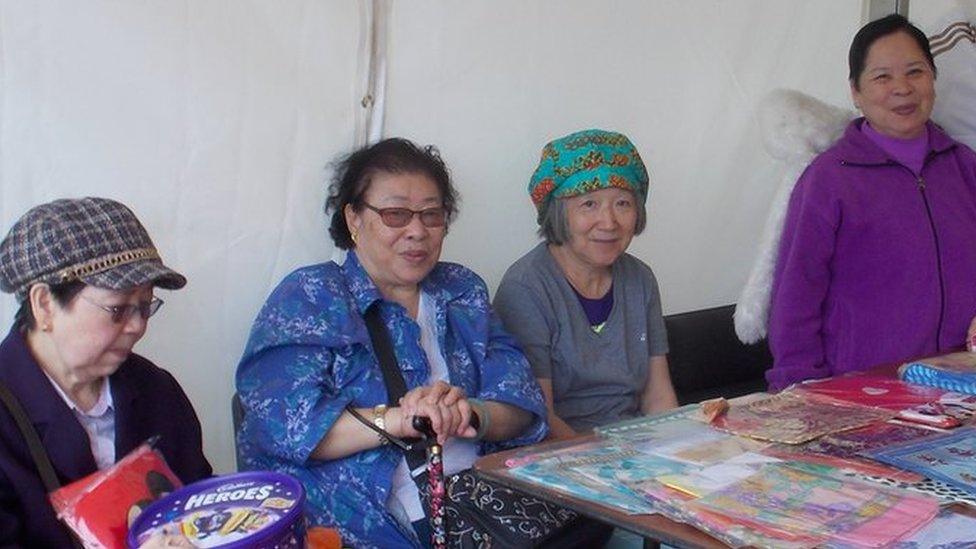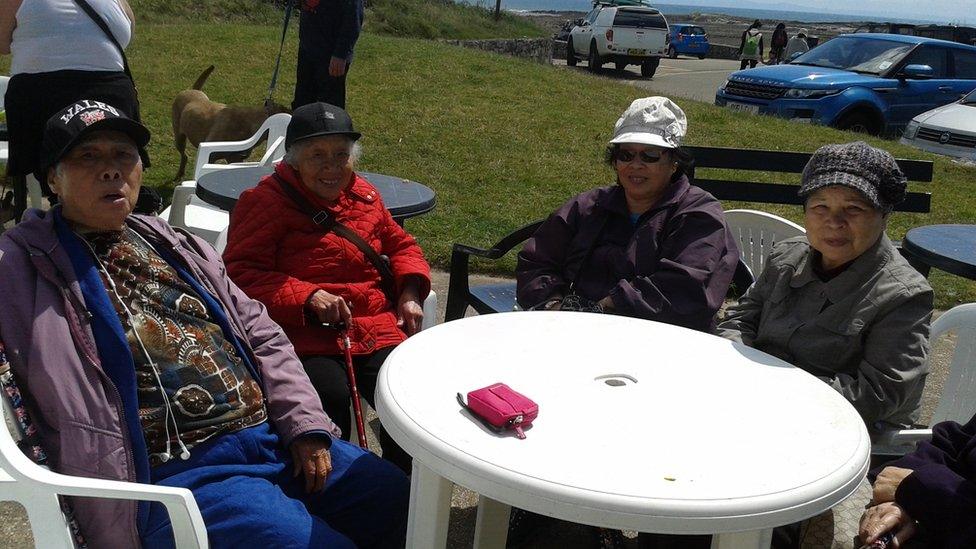Swansea's Chinese community connecting in retirement
- Published
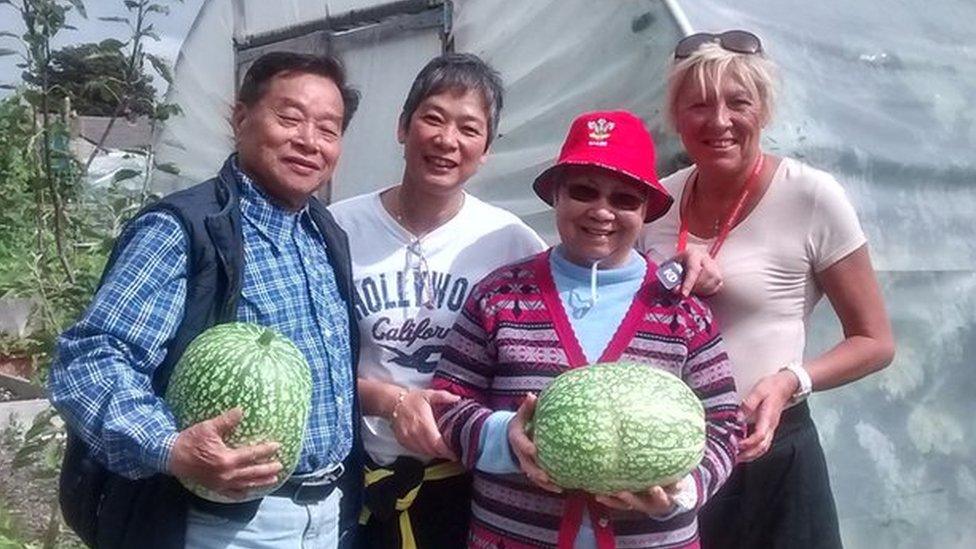
Growing old with no family living nearby can be a lonely experience.
But imagine you were also not able to speak to your neighbours, watch television or do basic things like buy groceries from the supermarket.
Living in this kind of isolation is the fate of a generation of retired Chinese people, many of whom moved to Wales to work in restaurants and takeaways, but never learnt English.
The issue is being tackled at Swan Gardens, a residential complex in the heart of Swansea, which has all its signs in Chinese and satellite television from the residents' homeland.
Other features include a restaurant-standard kitchen, ping pong table and a "lucky" fishpond.
But there are no room numbers four or 14, as four sounds like "death" in Chinese and is considered bad luck.
Even for the 28 people, aged 57 to 89, who live in the St Helen's Road accommodation, there are still communication challenges to overcome.
Many of the residents cannot read or write in their own language, and with five dialects - including Cantonese and Hakka - spoken, some are not even able to speak to each other.
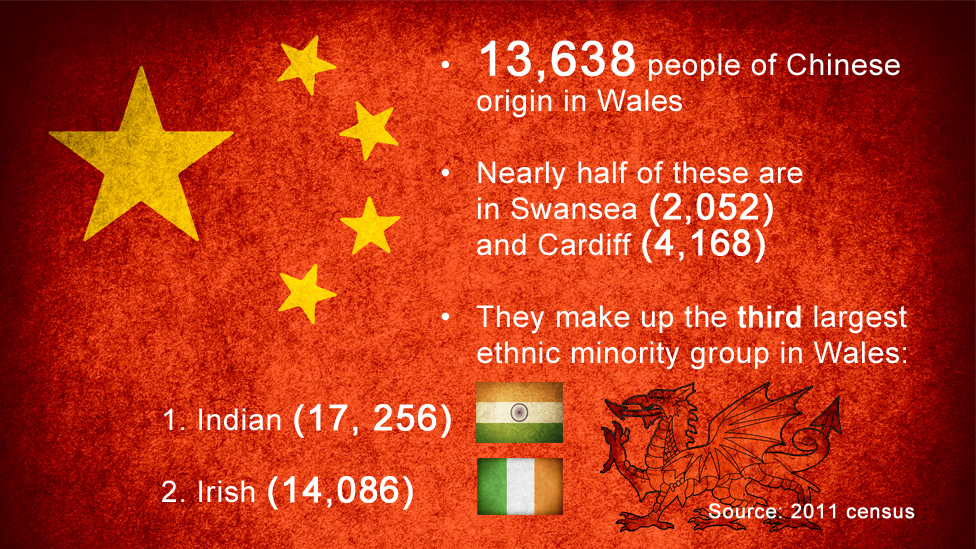
Residents include Bing Wong, 80, from Hong Kong, who moved to Cardiff 43 years ago "to cook dinner for my husband", who worked in a kitchen in the city.
But when her children moved to other parts of the UK and her husband died, she struggled with the language barrier and moved to Swan Gardens in 2011.
Chen Aiqiont, 57, sold clothes on a busy market stall in Guangdong Province but, after visiting relatives in Swansea 26 years ago, fell in love with the "quiet and calm" and decided to stay.
After retiring and moving into sheltered accommodation among English-speaking people, however, she found it difficult to cope.
Despite being given support, Swan Gardens residents such as these still have many problems to overcome.
For example, while staff are able to accompany them to hospital appointments, they are not legally able to translate information in case they misinterpret news about serious illnesses.
But two years of English lessons at least mean they know their names, dates of birth and addresses in the language - enough to register at their local GP's surgery.
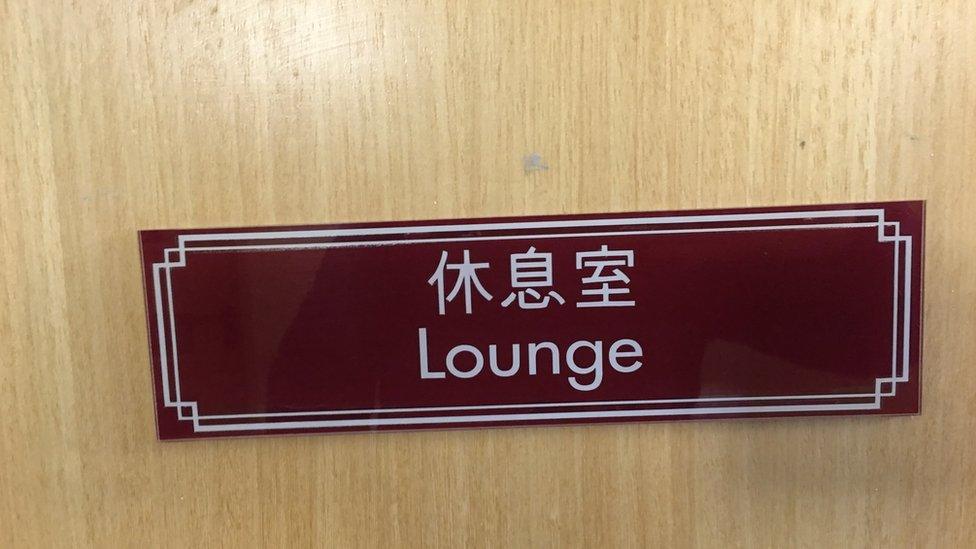
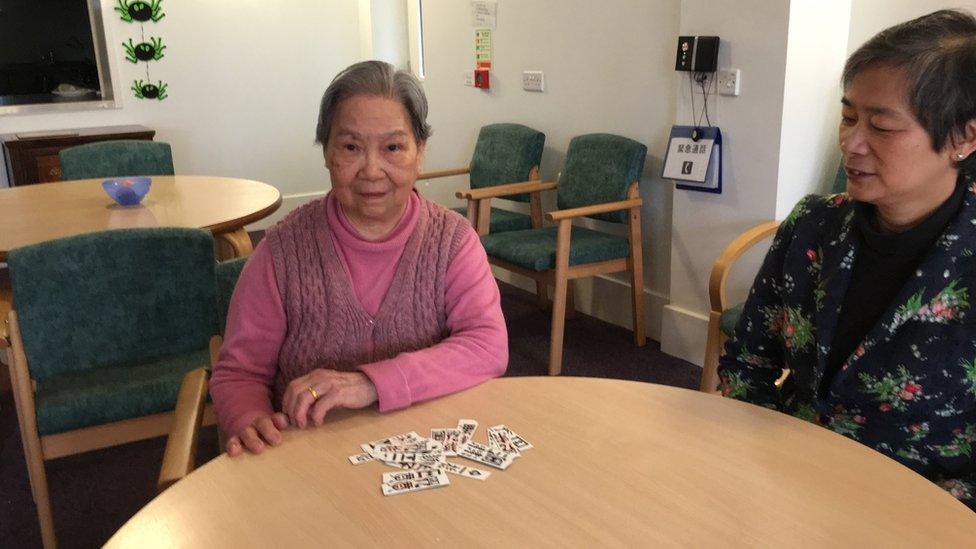
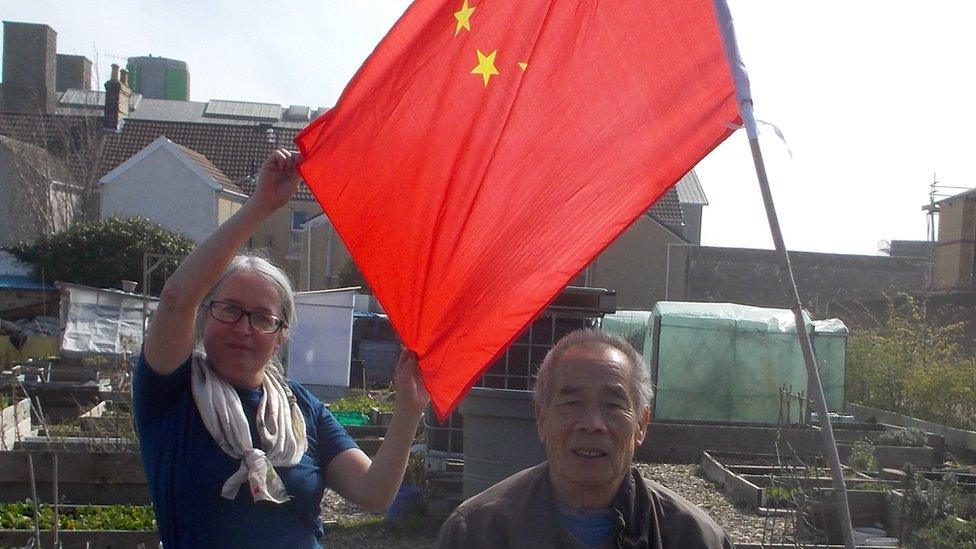
"A big worry is where do they go from here if they need extra care or to go into a nursing home?" said Ryan Harris, older persons manager at Swan Gardens.
"None would move as there would be loads of problems, from no Chinese television to needing Chinese-speaking carers.
"Currently, only one resident is having home help, but how would social services cope if their care needs increased?
"Some are illiterate in Chinese, so they would need to be spoken to not written."
Things are changing at Swan Gardens though. When it opened in 2004, Mr Harris described it as "very insular", with residents reluctant to go out into the city.
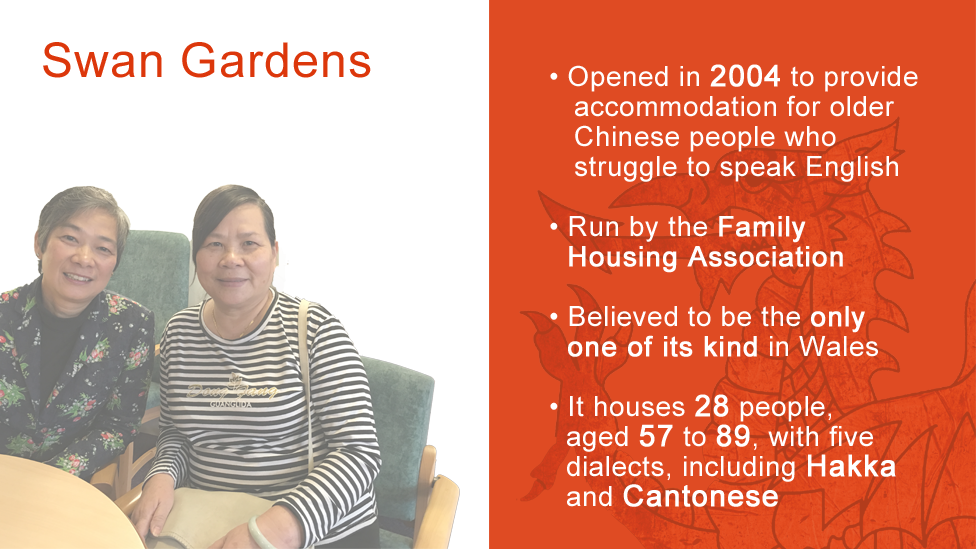
Now they grow Chinese pumpkins at an allotment on the former Vetch Field football site, visit shops with hand-written notes such as "I need superglue", and are so well-known for buying sea bass at Swansea Market, stall holders have learned some basic greetings.
There have been visits to similar accommodation in Manchester and Birmingham, while residents also cook for people from other sheltered housing complexes in Swansea.
While her own parents faced problems similar to those experienced by Swan Gardens' residents, project officer Fun Wong, 55, is an example of the huge shift that has occurred in a generation.
She is not only fluent in English but has married a Welshman and is learning Welsh.
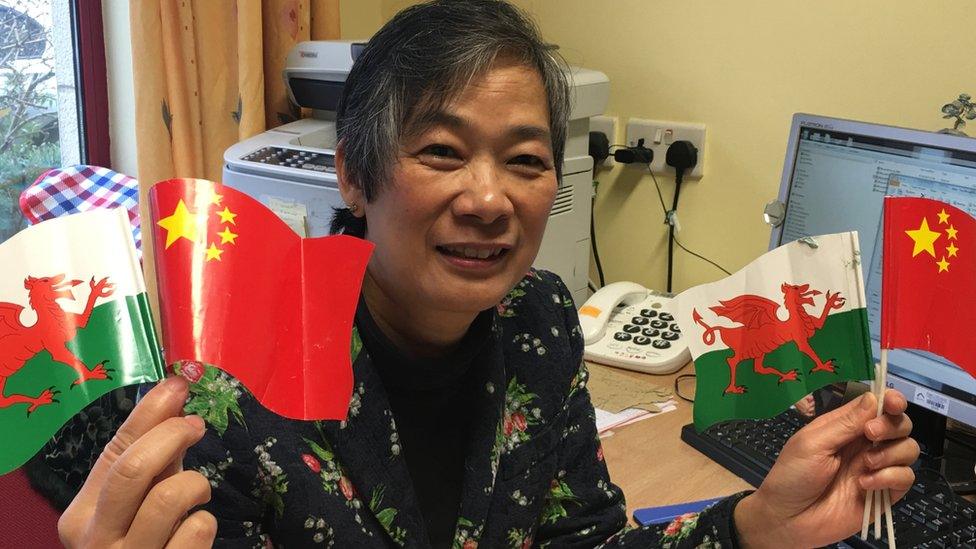
Originally from Guangzhou, her family moved to London in 1971, before buying a takeaway shop in the Sketty area of Swansea in 1976.
"As the eldest child in the family, I stayed and helped out in the takeaway," she said
"Because my parents couldn't speak any English, they were totally reliant on me.
"I'm second generation and takeaway life isn't for many in the younger generation.
"But I can understand why older Chinese do it as they can't speak English and it is a job they can do without needing any knowledge."
'The struggle'
Her parents went home to China after retiring, so Ms Wong was able to go to university and get a sociology degree, before starting a new career in the care sector.
"While many go back to where their roots are, I do understand the struggle of those who stay because they have family in the UK but live far away," she added.
And although Ms Wong has now lived in Wales most of her life and embraced many aspects of the culture, there are still some things that she will never fully understand.
"Because of the order names are said, I changed from Wong Yuk Fun to Yuk Fun Wong when I came here," she laughed.
"And I'll never get used to the fact that when people give you presents here, you open them in front of them.
"So, whether you like it or not, you've got to smile and say 'that's nice'."
